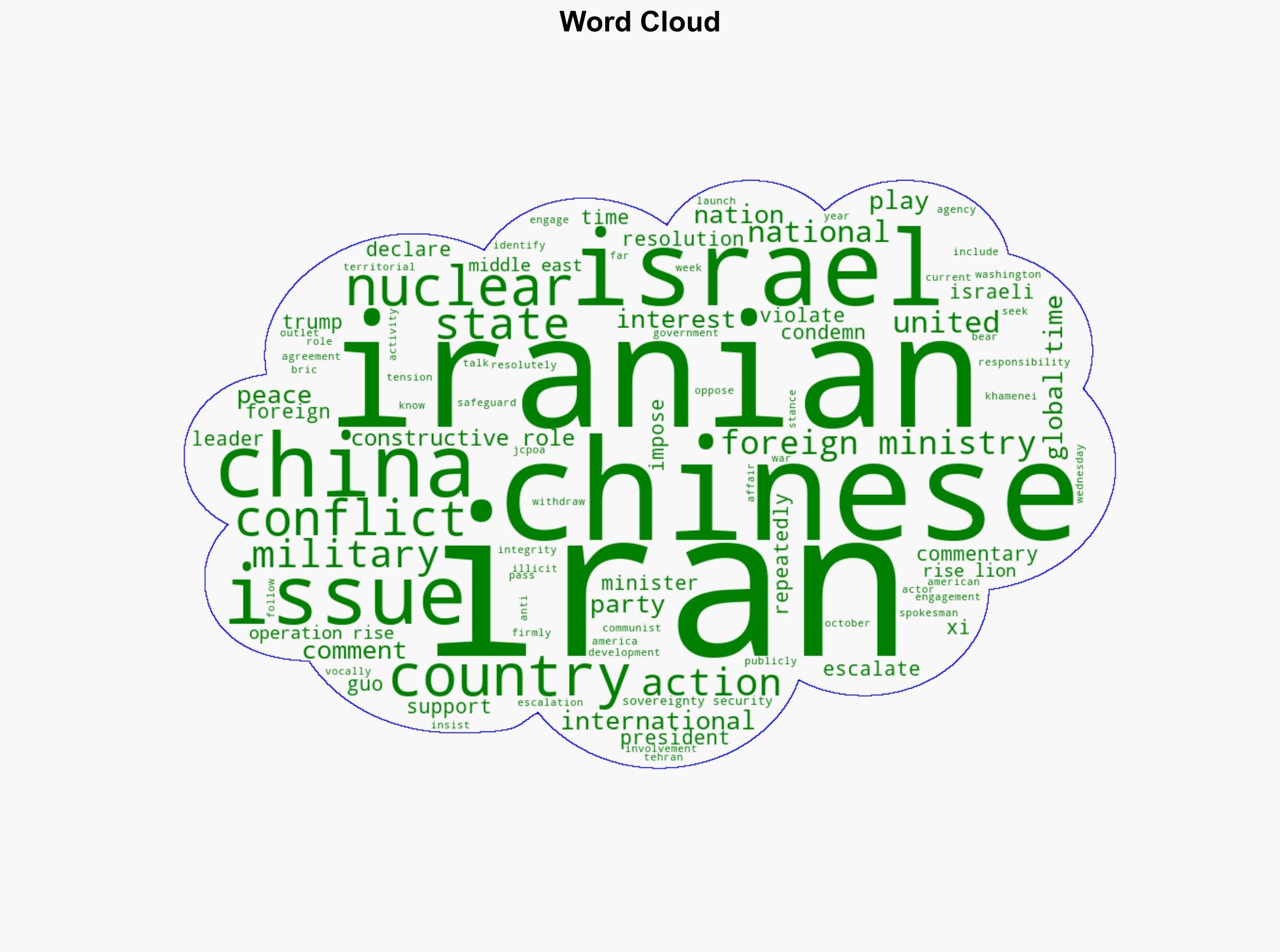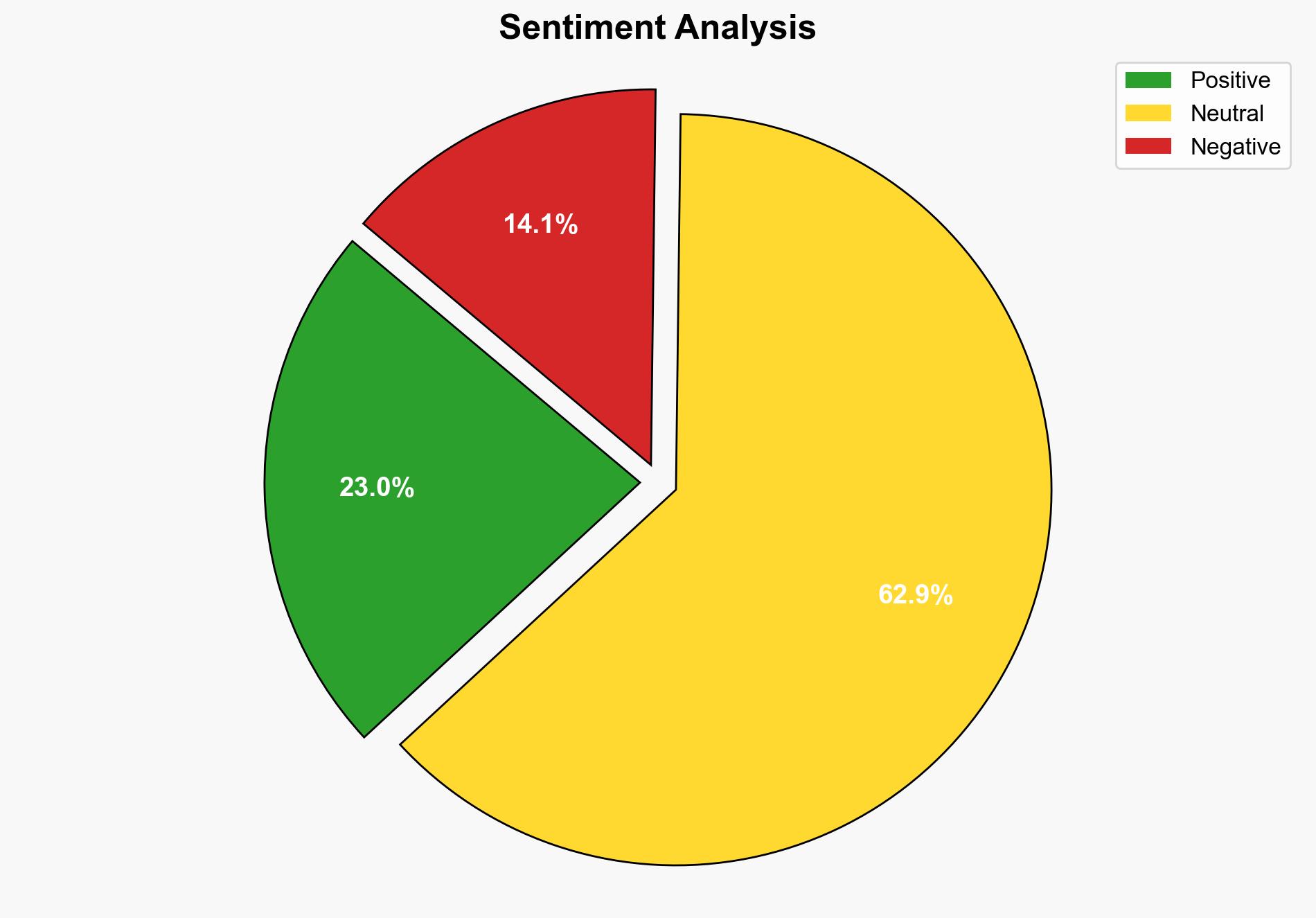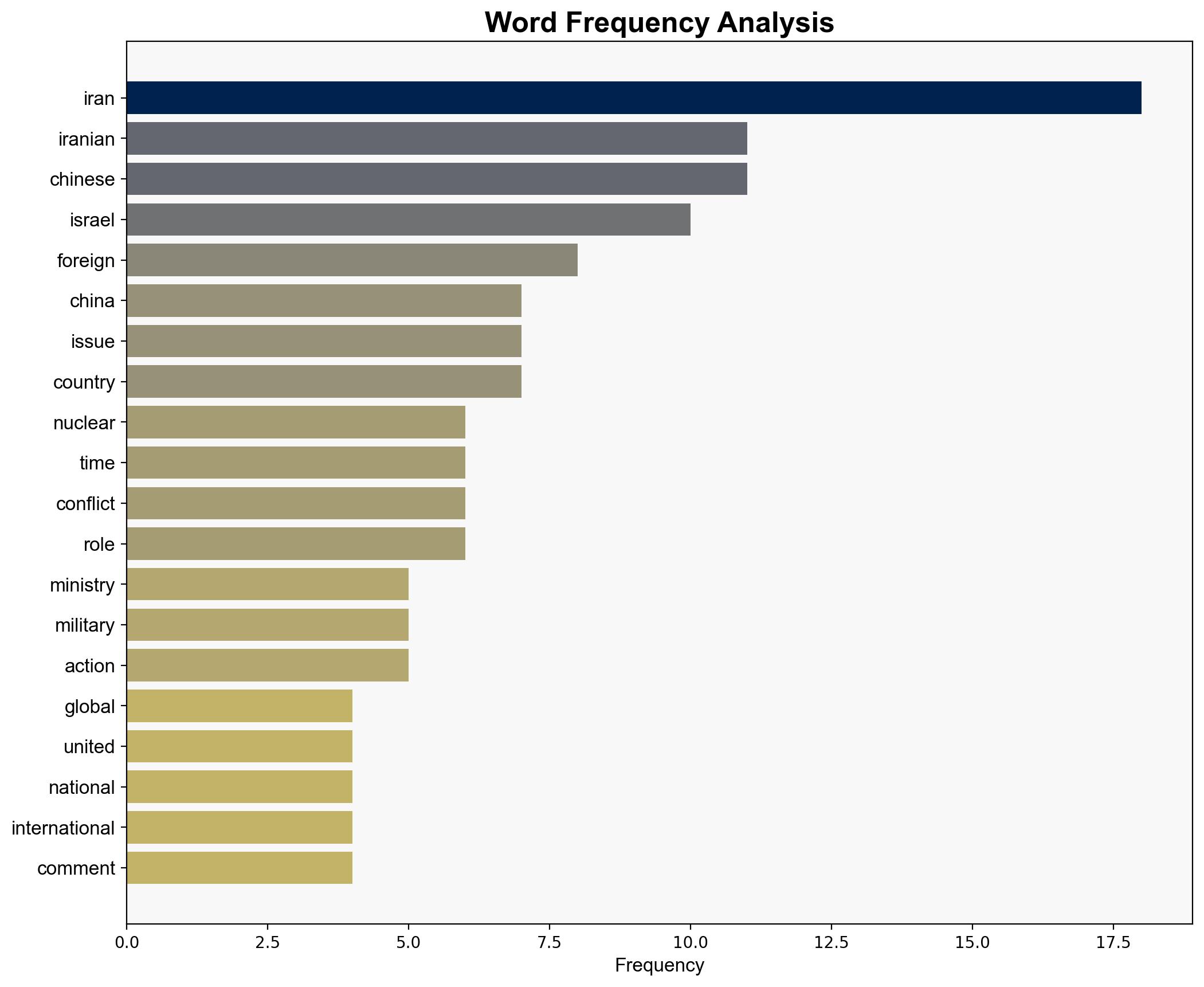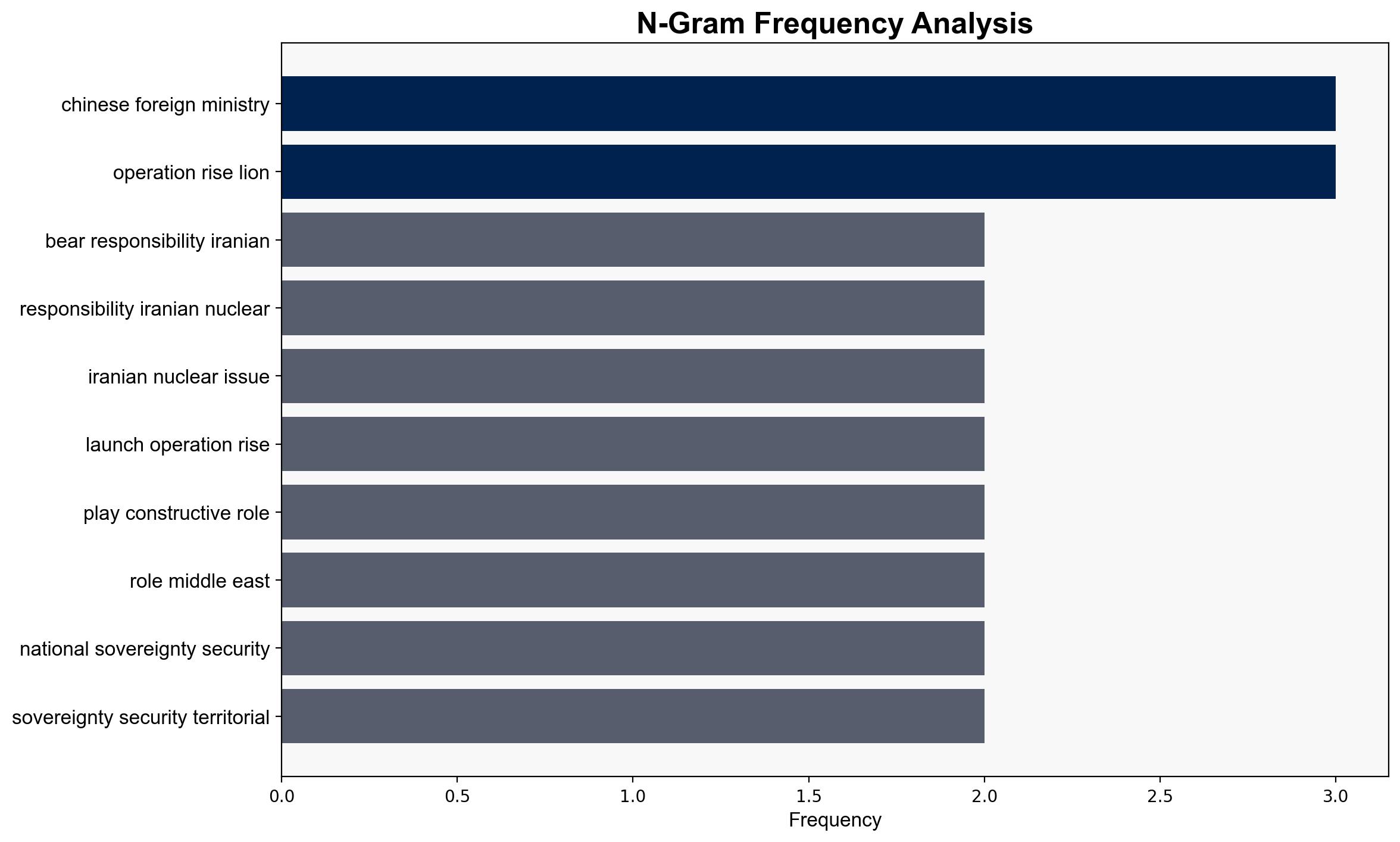China Seeking Relevance Blames US for Iran’s Illicit Nuclear Activities – Breitbart News
Published on: 2025-06-19
Intelligence Report: China Seeking Relevance Blames US for Iran’s Illicit Nuclear Activities – Breitbart News
1. BLUF (Bottom Line Up Front)
China is leveraging its media outlets to blame the United States for Iran’s nuclear activities, positioning itself as a mediator in Middle Eastern conflicts. This narrative aims to shift responsibility away from Iran and criticize U.S. policies, potentially increasing China’s influence in the region. Key recommendations include monitoring China’s diplomatic engagements and preparing for shifts in regional alliances.
2. Detailed Analysis
The following structured analytic techniques have been applied to ensure methodological consistency:
Cognitive Bias Stress Test
The analysis identifies potential biases in China’s narrative, such as portraying the U.S. as the primary antagonist while minimizing Iran’s nuclear activities. This bias could skew international perceptions and policy responses.
Bayesian Scenario Modeling
Probabilistic forecasting suggests a moderate likelihood of increased tensions between the U.S. and China, with potential escalation in the Middle East if China’s mediation efforts are perceived as biased.
Network Influence Mapping
China’s influence extends through state media and diplomatic channels, impacting Iran’s strategic decisions and regional power dynamics. This network could alter alliances and affect U.S. interests.
Narrative Pattern Analysis
China’s narrative frames the U.S. as destabilizing, while promoting its role as a peace broker. This narrative could gain traction among nations seeking alternatives to U.S. leadership.
3. Implications and Strategic Risks
China’s positioning may lead to increased geopolitical tension, with risks of miscalculation in U.S.-China relations. The narrative could embolden Iran, complicating diplomatic efforts and potentially leading to regional instability.
4. Recommendations and Outlook
- Enhance diplomatic engagement with allies to counterbalance China’s influence in the Middle East.
- Monitor China’s media narratives and diplomatic initiatives for shifts in regional strategy.
- Scenario Projections:
- Best Case: China facilitates genuine dialogue, reducing tensions.
- Worst Case: China’s involvement exacerbates conflicts, leading to broader regional instability.
- Most Likely: China continues to leverage its influence, with mixed outcomes on regional stability.
5. Key Individuals and Entities
Benjamin Netanyahu, Donald Trump, Ayatollah Ali Khamenei
6. Thematic Tags
national security threats, cybersecurity, counter-terrorism, regional focus





